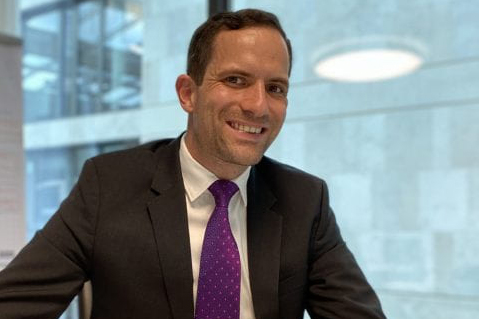Linus Bauer, a City alumnus, Visiting Lecturer and Dubai-based aviation consultant considers the way forward for the civil aviation industry.
By Mr John Stevenson (Senior Communications Officer), Published
 The most recent outlook from the International Air Transport Association (IATA) published in late November 2020, predicts an airline industry net loss of US$118.5 billion in 2020 and a further loss of US$38.7 billion in 2021.
The most recent outlook from the International Air Transport Association (IATA) published in late November 2020, predicts an airline industry net loss of US$118.5 billion in 2020 and a further loss of US$38.7 billion in 2021.
That said, Linus Bauer, a Visiting Lecturer on City's MSc Air Transport Management programme, says the level of airline failures in 2020 did not reach a new record high.
He points out that the extent of government support, estimated to be at least US$180 billion to date, has played a major role in saving a number of weak legacy carriers from collapse, but in doing so, it has created long-term imbalances within the industry.
According to the City alumnus and Managing Consultant at Bauer Aviation Advisory, the impact of the Coronavirus pandemic is far from behind us:
The COVID-19 pandemic put the aviation industry in a crisis much deeper than those that followed both 9/11 and the Global Financial Crisis. A long stretch of sustained growth was stopped in its tracks in 2020 and the next several years will be spent trying to get back to pre-COVID-19 levels. Even when vaccines have significantly slowed the spread of the virus, the economic downturn caused by the pandemic is expected to continue and it has a negative impact on business travel demand during the recovery phase. In addition to that, it is estimated that about 300 million people worldwide lost their jobs as a result of this crisis. These job losses around the world are likely to have significant and lost-lasting impacts on the global economy and demand for travel by plane.
Mr Bauer predicts “deep losses in the aviation industry which will continue into 2021, even though performance is expected to improve over the upcoming months in various regions across the globe.”
On a more optimistic note, he believes that performance factors in 2021 already show improvements on 2020 and that the second half of 2021 is expected to see some uplift after a challenging first half of 2021.
He is of the view that aggressive cost-cutting measures are expected to combine with increased demand for aircraft travel during 2021 (e.g. re-opening of borders with testing protocols and the widespread availability of a vaccine as seen in the Gulf Cooperation Council region) to see the industry turn cash-positive in Q4 of 2021.
With all the forward-thinking strategies and high customer confidence for aircraft travel, the GCC region could lead the way in the recovery from the pandemic and become the world's first post-COVID-19 economy. A successful roll-out of the vaccination programme in the GCC region and around (e.g. Israel), coupled with adaptability and speed, is vital to the resurgence of the aviation industry. Easing travel restrictions would lay the foundation for the GCC region to become one of the first economies to restart their aviation industry. Following the circulation of vaccines, borders reopening and airlines’ ability to grow their cargo businesses, I anticipate the commercial aviation industry will rebuild in 2021 ahead of an industry recovery in 2022-2023 before emerging stronger than pre-crisis levels from 2024 onwards.
